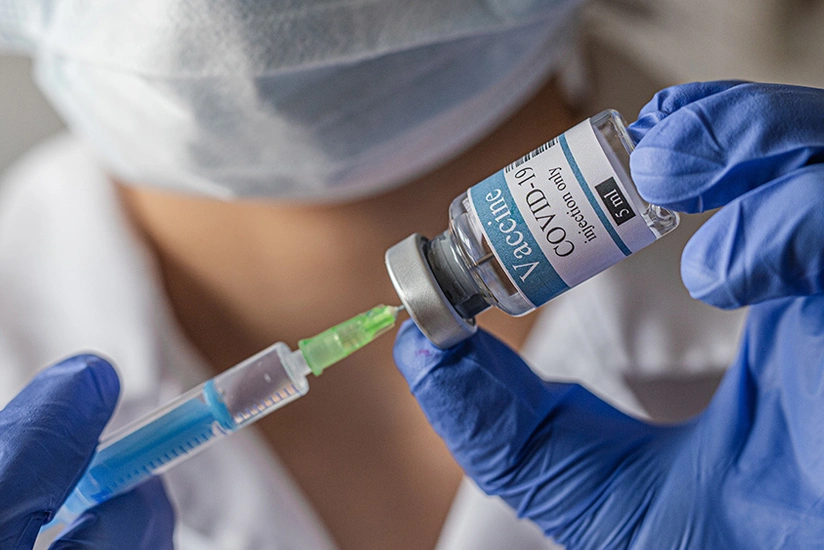Scientists establish whether flu shot helps to fight COVID
- 15 September, 2021
- 13:25

A new paper published on the preprint server medRxiv finds that the influenza vaccine may influence both the response to and incidence of infection by the severe acute respiratory syndrome coronavirus 2 (SARS-CoV-2), Report informs referring to News Medical.
The researchers of the current study present evidence that those who took the flu shots experienced an immune response that reduced their risk of the coronavirus disease 2019 (COVID-19), the disease caused by SARS-CoV-2, by 37 percent during the first wave of the pandemic, and by almost half in the second wave. This indicates that influenza vaccination may protect against SARS-CoV-2 infection.
The researchers of the current study found that the incidence of COVID-19 among hospital workers was much lower among those who had taken the quadrivalent flu shot. More specifically, 184 cases of COVID-19 were reported, which included 3.3 percent of those who had not taken the flu shot as compared to 2.1 percent of those who had. Taken together, those who had received a flu shot experienced a risk reduction of 47 percent.
The same pattern was repeated in the second wave of the COVID-19 pandemic, where the flu shot coverage was 42 percent. The researchers found that 2 percent of those who were vaccinated against the flu, but 3.9 percent of those who were not, contracted COVID-19. The risk was thus 50 percent lower in the flu-shot group.
The researchers found that this protective effect might be due to trained immunity. They examined the blood cells of the study participants before and after vaccination.
Since the hyper-inflammatory response seen in severe and critical COVID-19 is thought to be due to a dysregulation of the immune response that is triggered by SARS-CoV-2, this area was also explored.
The researchers found that almost 370 inflammatory proteins were strongly downregulated after the flu shot. This included many cytokines from the tumor necrosis factor (TNF) superfamily, interleukin receptor-associated proteins, and mitogen-activated protein kinase kinase 6. In fact, just one protein that is required for the synthesis of oligosaccharides for protein glycosylation was found to be upregulated.
This study shows that the quadrivalent inactivated influenza vaccine reduces the risk of COVID-19 infection by up to 47 percent. Immune cells become more responsive to various viral stimuli after the flu shot, indicating that this vaccine trains the immune response.
The flu shot also reduces the inflammatory response to subsequent SARS-CoV-2 infection. The influenza vaccine is thus safe, even if the individual should later develop COVID-19.
